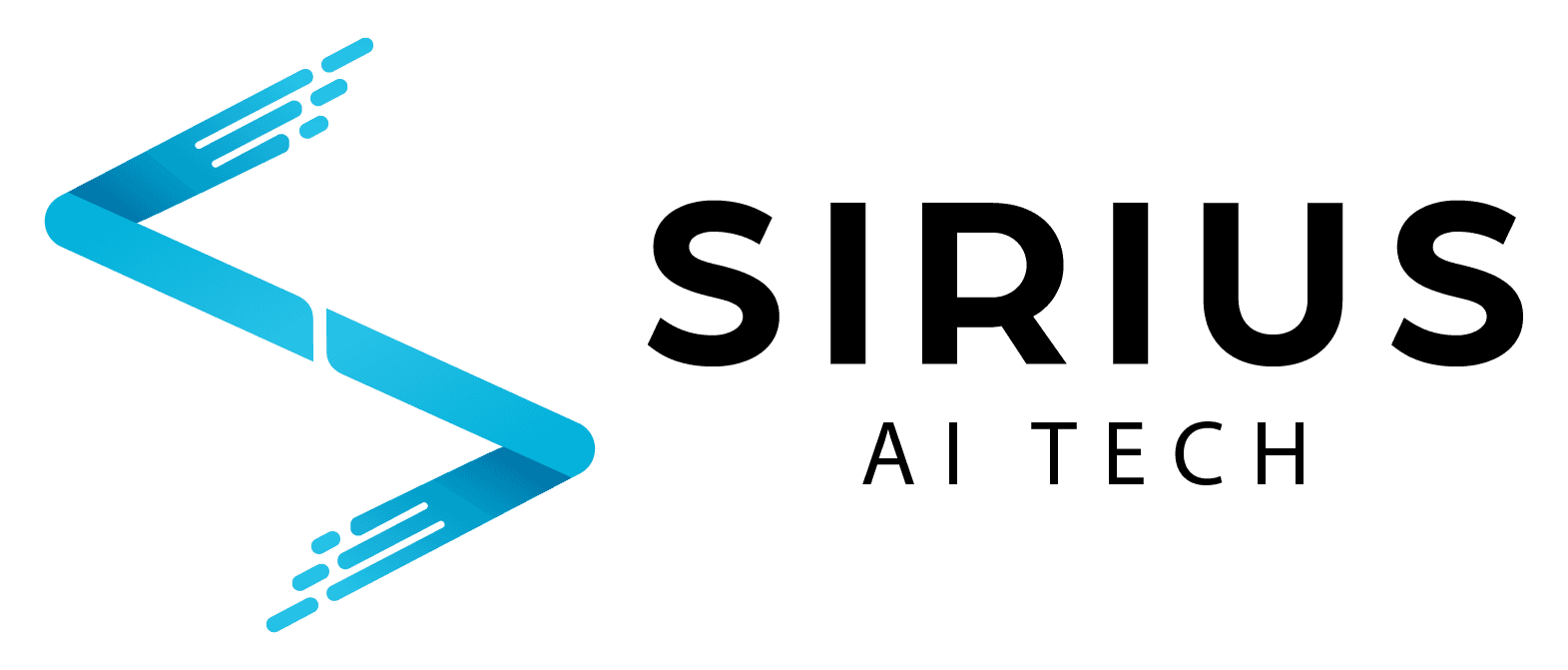The Future of AI: Predictions and Possibilities
Discover how artificial intelligence is transforming industries, reshaping jobs, and revolutionizing urban living, all while addressing key ethical challenges.
Blog >
The Future of AI: Predictions and Possibilities
The Future of AI: Predictions and Possibilities
Have you ever paused to imagine how the world might change in the next decade because of artificial intelligence? AI is not just a futuristic concept; it’s already reshaping industries, redefining productivity, and challenging our understanding of what technology can achieve. In this blog post, we’ll dive deep into the future of AI, exploring predictions, possibilities, and the challenges that lie ahead. Get ready to question, reflect, and maybe even be a little inspired.
The AI Revolution in Numbers
To truly grasp what the future holds, it’s important to understand where we are today. AI technology has come a long way, from the early days of basic automation to the sophisticated neural networks powering applications like natural language processing, image recognition, and predictive analytics. In 2023, AI’s contribution to the global economy was estimated to be in the hundreds of billions of dollars, and forecasts suggest that by 2030, AI could add up to $15.7 trillion to the world economy, according to PwC. That’s not just growth, it’s a revolution.
Short and simple: AI is already everywhere. It’s in our smartphones, our homes, and even in the way businesses operate. As more companies integrate AI into their operations, we’re seeing productivity gains, cost reductions, and new business models emerge at a rapid pace. But how exactly will this technology continue to evolve?
The Road Ahead: Predictions for AI
Let’s break down some of the key predictions for the future of AI. These aren’t just wild guesses, they’re based on trends, research, and real data from leading institutions.
1. Exponential Growth in AI Capabilities
AI is evolving at an unprecedented rate. Experts predict that advancements in machine learning, particularly in deep learning and reinforcement learning, will lead to systems that can perform tasks previously thought to require human intuition and creativity. The progress of models like GPT-4 and its successors hints at a future where AI understands context, emotion, and nuance with greater precision.
Speed of Learning: Future AI systems may learn from far less data than current models require.
Contextual Understanding: We might see AI that can understand and generate content that is even more contextually rich and human-like.
Creative Problem Solving: Imagine AI that can not only solve problems but also propose innovative solutions in fields like climate change, urban planning, or medicine.
2. Integration Across Industries
AI’s influence is expected to expand dramatically across various sectors:
Healthcare: AI-powered diagnostics and personalized medicine will become standard practice. For instance, recent studies have shown that AI can detect certain types of cancer with accuracy rates comparable to expert radiologists.
Transportation: Self-driving cars and smart traffic management systems promise safer, more efficient roads. According to a 2022 report by the World Economic Forum, AI could reduce traffic accidents by up to 90% in the coming decades.
Finance: Algorithmic trading, fraud detection, and risk management are being transformed by AI. Many banks and financial institutions are already leveraging AI to predict market trends and enhance security.
Education: Adaptive learning platforms and AI tutors are personalizing education like never before, helping students learn at their own pace and style.
What do you think? Which industry do you believe will be most transformed by AI in the next few years?
3. Economic Impact and Job Transformation
While there is concern that AI might replace human jobs, the overall picture is more nuanced. According to a 2022 McKinsey Global Institute report, AI has the potential to boost productivity by 1.4% annually in the coming years, creating new roles even as it automates routine tasks. Jobs that involve creativity, empathy, and complex decision-making are less likely to be replaced.
Consider these possibilities:
New Job Categories: Roles such as AI ethics officers, data bias auditors, and algorithm explainers might become commonplace.
Augmentation Over Replacement: In many cases, AI will serve as a tool that enhances human capabilities rather than replacing them. Think of a doctor using AI to analyze medical images faster and more accurately.
Reskilling and Upskilling: As industries evolve, continuous learning will become essential. Organizations and governments will need to invest in education and training programs to prepare the workforce for these changes.
Are you ready to embrace a future where your job might evolve dramatically, or even where new roles you never imagined could emerge?
Possibilities Unleashed: Creative and Societal Impacts
The potential of AI goes far beyond mere productivity gains. Here are some of the more creative and societal possibilities that might come to fruition in the near future.
Enhanced Human-AI Collaboration
Imagine a world where AI systems work seamlessly alongside humans. Not as replacements, but as collaborators that enhance creativity and efficiency. In creative industries like design, music, and writing, AI is already being used as a tool to spark inspiration and generate new ideas. What if future AI could serve as a creative partner, offering suggestions or even co-creating art, literature, or music?
Short sentences can be powerful. They force us to focus. And so can AI. The future might see AI that understands and adapts to individual creative styles, pushing the boundaries of art and expression.
Transforming Urban Living
Smart cities are no longer a concept confined to science fiction. With AI, cities could become more efficient, sustainable, and livable. Picture urban areas where traffic lights, public transportation, energy grids, and even waste management systems are optimized in real-time. According to a study by Accenture, smart city solutions powered by AI could save up to $1 trillion annually in energy, water, and transportation costs globally.
Such innovations could lead to:
Reduced Pollution: Smarter energy consumption and waste management systems can lower emissions.
Improved Quality of Life: Efficient public services mean less time stuck in traffic and more time for leisure and community activities.
Resilient Infrastructure: AI can help predict and manage urban challenges such as overcrowding and natural disasters.
How do you envision your city evolving with AI at its core? Could this transform the daily commute, the way you live, or even the air you breathe?
Ethical AI and Social Responsibility
With great power comes great responsibility. The rapid advancement of AI also brings critical ethical questions. How do we ensure that AI systems are fair, unbiased, and transparent? The development of AI ethics frameworks is already underway in many parts of the world. Organizations like the IEEE and the European Commission have proposed guidelines and standards for the ethical use of AI.
Key considerations include:
Bias and Fairness: How can we prevent AI systems from perpetuating or amplifying societal biases?
Privacy: With AI processing vast amounts of data, ensuring privacy and data protection is more critical than ever.
Transparency: Should AI decisions be explainable, especially when they affect areas like criminal justice or healthcare?
Accountability: When AI makes a mistake, who is responsible?
These questions aren’t just academic; they have real-world implications. As AI continues to integrate into our lives, your voice matters. What ethical safeguards do you think are essential for an AI-driven future?
The Challenges Ahead
Despite the tremendous promise, the path forward is not without hurdles. One of the biggest challenges is managing the transition as AI becomes more pervasive. This involves both technical challenges and societal adjustments.
Technical Hurdles
Developing AI systems that can reason, understand context, and make ethical decisions remains a significant technical challenge. Issues like data quality, algorithmic bias, and the interpretability of complex models are ongoing areas of research. The field is dynamic, and breakthroughs happen regularly, but they also come with their own sets of challenges.
Societal and Regulatory Challenges
Regulation is a double-edged sword. On one hand, clear guidelines are essential for protecting public interest; on the other, overly rigid rules could stifle innovation. Governments and regulatory bodies around the world are grappling with how best to create policies that encourage innovation while ensuring safety and fairness.
Moreover, there is the challenge of digital divide. As AI technology advances, ensuring that its benefits are accessible to all, regardless of geography or socio-economic status, is crucial. How can we build an inclusive future where everyone reaps the rewards of AI innovation?
A Glimpse into the Future
In the grand tapestry of technological evolution, AI is emerging as a central thread that will weave together various aspects of our lives, work, health, education, and even creativity. The future is vibrant with possibility, but it’s not predetermined. The decisions we make today, in research, in policy, and in how we embrace new technology, will shape the world of tomorrow.
Imagine waking up in a world where:
Your daily commute is managed by smart traffic systems, reducing travel time and pollution.
Healthcare is personalized and proactive, with AI predicting health issues before they become critical.
Your workplace is a hub of human-AI collaboration, where technology augments your abilities rather than replacing them.
Cities are designed for optimal resource use, with AI systems ensuring efficiency in every facet of urban living.
Each of these scenarios is within reach. They require vision, collaboration, and a willingness to address both the opportunities and challenges head-on.
Sirius AI Tech: Pioneering AI Innovations
As artificial intelligence continues to evolve, companies like Sirius AI Tech are at the forefront, developing innovative solutions that enhance efficiency across various industries. For instance, their product Seferi is designed to optimize logistics operations, exemplifying how AI can streamline complex processes. Additionally, Boss AI offers advanced analytics to support data-driven decision-making in business environments. Such advancements not only highlight the practical applications of AI but also underscore the transformative potential of these technologies in our daily lives.
Join the Conversation
The future of AI isn’t just a topic for researchers and technologists, it’s a conversation for all of us. What are your thoughts on AI’s evolving role in our lives? Do you see it as a tool that will enhance human potential, or are you concerned about the ethical and societal challenges it brings? How do you think we can balance innovation with responsibility?
Your insights matter. As we navigate this transformative era, sharing ideas and engaging in thoughtful discussion is more important than ever. Leave a comment below or join our forum to continue the conversation. Let’s shape the future of AI together.
Conclusion
The predictions and possibilities of AI paint an exciting picture of the future, one where technology amplifies our human potential, transforms industries, and makes our cities smarter and more sustainable. The journey will be complex and challenging, but it also promises unprecedented opportunities for growth, creativity, and social advancement.
In the end, AI is not an inevitable force, it’s a tool that we build and guide. Its future is in our hands. So, as you reflect on the ideas presented here, ask yourself: What role will you play in shaping this future? And what steps can you take today to be a part of this remarkable evolution?
Thank you for joining me on this exploration into the future of AI. The possibilities are vast, the challenges are real, and the conversation is just beginning. Let’s continue to question, learn, and innovate—together.
Related Blogs

The EU AI Act: A Barrier to Innovation or a Blueprint for Responsible AI?
Explore how the EU AI Act reshapes innovation, ethics, and compliance in AI—and how Sirius AI Tech helps businesses adapt responsibly.
Read

Small Business, Big Impact: How AI Agents Can Boost Your Competitive Edge
Discover how AI agents can boost your small business's efficiency, enhance customer service, and drive growth. Unlock your competitive edge today!
Read

Celebrating Pioneering Women in Artificial Intelligence: Inspiring Stories and Impactful Contributions
The inspiring journeys and groundbreaking contributions of pioneering women in artificial intelligence. Explore the importance of ethical AI, diversity, and inclusivity in technology.
Read
Topics
#
Sirius AI Tech
#
Seferi
#
Lobster Lead
#
CV US
#
Boss AI
#
Quantum
#
Calling AI
#
News
#
Resources





